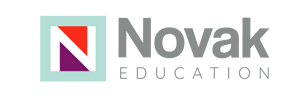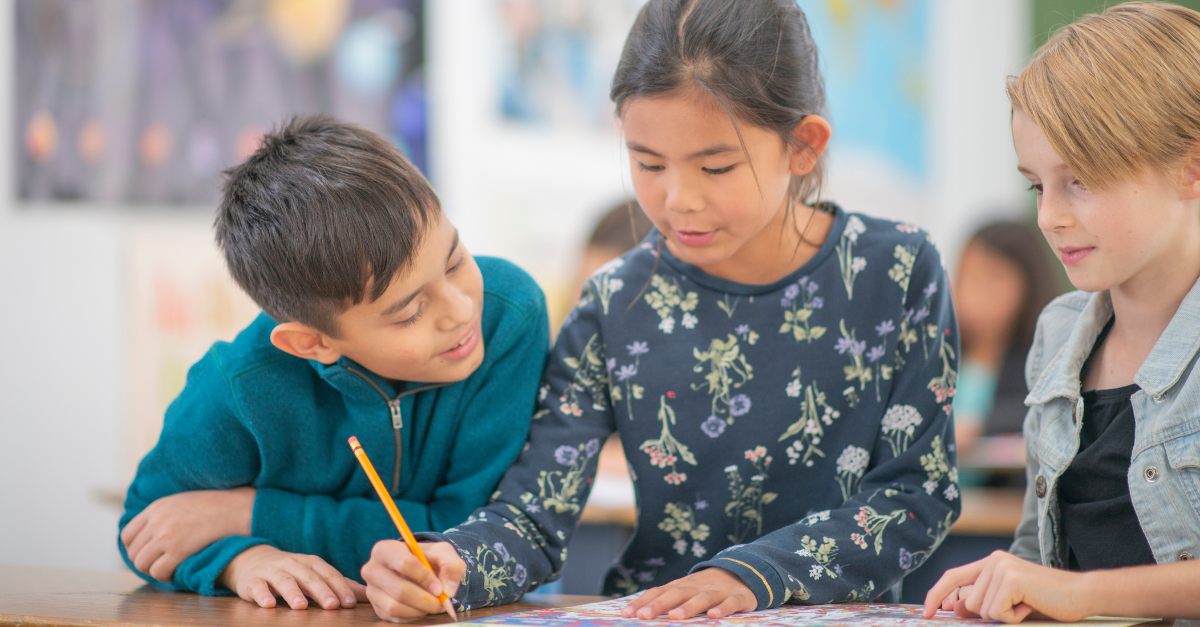When I was little, I knew I wanted to be a teacher, so naturally, I would play school with my dolls. I would line each of them up in front of a small chalkboard, and then - showtime! I put on quite a performance to tell them everything they needed to know. I took the concept of Stand and Deliver way too seriously. After all, that was a teacher's job, wasn't it? In all fairness, for a long time, it was. But not anymore. When many people think of classrooms, they imagine a teacher standing in front of the room, students sitting in rows, textbooks, notebooks, and lectures. This is also often referred to as a traditional or one-size-fits-all classroom. As the great Bob Dylan said, “The times they are a-changin'.’ Universal Design for Learning (UDL) can support us with this change as the framework's goal is to cultivate learner agency that is purposeful and reflective, resourceful and authentic, strategic, and action-oriented.
Learner agency refers to the capacity of students to take ownership of their learning, make informed choices, and actively participate in their educational journey. I would have had a realllly hard time getting my glass-eyed dolls to do that! The fact that we are competing with robots and the fact that we are preparing students for jobs that we can’t even imagine requires us to shift away from traditional, teacher-centered models, where students are passive recipients of information, towards more student-centric approaches that foster critical thinking, problem-solving, and lifelong learning skills (bonus - this means more balance for us as educators!).
Educators as Facilitators of Learner Agency
As educators, we play a pivotal role in cultivating learner agency. We are no longer simply dispensers of knowledge but guides and facilitators who create conditions that empower students to become active learners. As we look to make real change and empower and engage our learners, below are four ways to build learner agency in the classroom:
Create an Environment Where Students Feel Supported
A safe and inclusive classroom environment is essential for fostering learner agency. We can create such an environment by promoting respect, empathy, and collaboration among students. We can also ensure that all students feel valued and supported, regardless of their backgrounds or abilities.
One great way to build empathy in your learning environment is to provide students with opportunities to self-reflect before sharing what they choose and why. For example, if given the option to read a hard copy of a text or a digital one, a student may say, "I am going to access a digital text today and use a read-aloud so I can listen as I had a super bad headache this morning and my head still hurts and it would be helpful for me to listen." Acknowledging learner variability and allowing students to share their strategies and how those strategies change is a great way to embrace multiple ways of learning. 
Did you know? All learning occurs in the pre-frontal cortex. It is impossible to access this part of the brain when the brain stem and limbic system are under siege. Safety and belonging are critical to learning.
Provide Opportunities for Student Choice and Autonomy
Giving students opportunities to make choices about their learning can help them develop a sense of ownership and autonomy. This can include allowing students to select topics, choose their own projects, or determine the format of their presentations. I know, I know but you have standards you need to follow, I can assure you there is always someplace where you can shift student choice and autonomy to the learner (seriously, email us if you receive pushback on this!) As Cat Tucker and I shared in The Shift to Student-Led, “If the firm goal is to write informational text, for example, then all students will, in fact, write. Students can choose to handwrite, type, or use voice-to-text. They may have the option to work with peers or use tools like graphic organizers and sentence stems.” That’s the power of UDL.
Encourage Critical Thinking and Problem-Solving
Critical thinking and problem-solving are essential skills for learners to develop. We can foster these skills by asking open-ended questions, encouraging students to analyze information, and providing opportunities for students to work on real-world problems. Our role as educators is not to merely tell our learners what to do. We have to motivate students so they understand why learning something is important. Students may not use the necessary coping mechanisms to persist if they don’t care about the end goal. When we teach them the power of micro-failure and encourage productive struggle and resilience, our students will develop the necessary coping mechanisms and skills to prepare them for their current and future roles.
Promote Metacognition and Self-Regulation
Metacognition, or thinking about one's own thinking, is a crucial aspect of learner agency. We can help students develop metacognitive skills by teaching them strategies for monitoring their understanding, setting goals, and adjusting their learning approaches as needed. As they work, ask them to reiterate the goal and share their strategy, along with whether or not the strategy is effective. For example, prompt them to state their goal, describe their strategy, and reflect on whether the strategy is supporting their learning and how they know it is or isn’t. If they recognize they are not making progress, encourage them to adapt their strategy and choose a different path that better supports their learning journey.
As educators today, we have the opportunity to go beyond simply imparting knowledge—we can ignite a passion for learning that lasts a lifetime by supporting learner agency in our classrooms. By embracing Universal Design for Learning and fostering learner agency, we empower students to take charge of their educational journeys, encouraging them to become active, engaged, and resilient learners who will have a far richer experience than my poor dolls ever did.
Cultivate future-ready skills in your classrooms and beyond. Explore professional development options and contact us and we will find the best fit for you!



